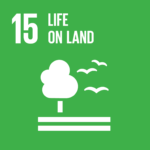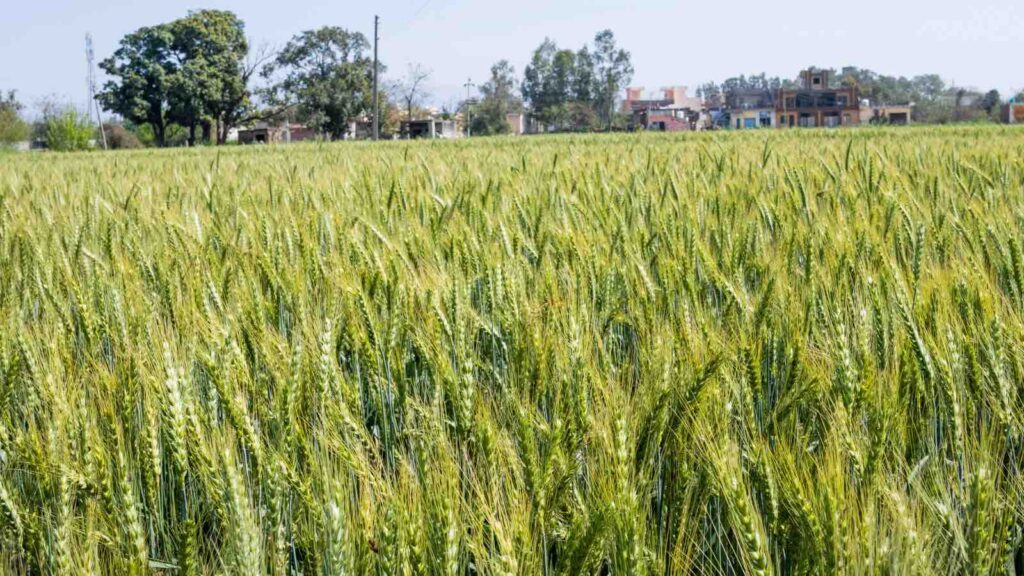Farmers from areas like Hoshiarpur, Ropar, Mohali, Pathankot, and Nawanshahr are now benefiting from a Rs 45-crore carbon credit pilot project that rewards them for planting and maintaining trees on their agricultural lands.
In a groundbreaking step toward environmental sustainability and farmer welfare, 3,686 farmers from Punjab’s Kandi region received their first installment of carbon credit compensation. Farmers from areas like Hoshiarpur, Ropar, Mohali, Pathankot, and Nawanshahr are now benefiting from a Rs 45-crore pilot project that rewards them for planting and maintaining trees on their agricultural lands. The initiative, led by the Punjab government in collaboration with The Energy and Source Institute (TERI) and an international company, is offering farmers both a greener future and a significant additional income.
RELEVANT SUSTAINABLE GOALS




At the 73rd Van Mahotsav event in Hoshiarpur, Chief Minister Bhagwant Mann distributed Rs 1.75 crore to 818 farmers. Parminderjit Singh Cheema, a farmer from Pur Hiran village, was one of the recipients. He received Rs 20,985, part of his compensation for planting trees instead of traditional wheat and paddy on his land. It’s a reward that reflects a fundamental shift in how agriculture, environment, and economy can work together.
Turning Trees into Income: How Carbon Credits Work
The carbon credit compensation program encourages farmers to adopt agro-forestry by planting trees that help reduce CO2 in the atmosphere. These trees not only sequester carbon but also offer farmers a valuable asset—after five years, they can be sold to industries like paper and furniture manufacturing, providing a double benefit.
“The trees mature in 5-6 years, and after that, I sell them for timber and replant the next batch,” said Cheema, who plants eucalyptus and poplar trees on his 17-acre farm. “We also practice intercropping in the first three years, growing crops alongside the trees. It’s a win-win for both the environment and my income.”
Farmers like Cheema are showing how agriculture can evolve to meet modern challenges. This initiative not only improves air quality and mitigates climate change but also diversifies farmer income, reducing their dependence on traditional, water-intensive crops like paddy.
Punjab: The First State to Pioneer Carbon Credit for Farmers
Punjab’s Chief Minister, Bhagwant Mann, proudly declared that Punjab is the first Indian state to launch a carbon credit scheme aimed at farmers. The initiative underscores the government’s commitment to tackling climate change while boosting farmer incomes. Mann emphasized the importance of such programs in fostering environmental sustainability and curbing global warming. He urged farmers and citizens to participate more actively in tree plantation drives to maximize the program’s impact.
“This initiative creates a sustainable model that benefits both the ecosystem and the farming community,” said Dr. Sanjeev Tiwari, Forest Conservator of the North Circle. Tiwari explained that farmers who planted trees as far back as 2016 are now reaping the rewards of the program.
A Call to Scale Up: Addressing Environmental Imbalances
With only 6.6 percent forest cover, far below the national goal of 33 percent, Punjab faces serious environmental challenges. The state’s reliance on water-intensive crops has led to a dangerously low water table and overuse of chemicals that have polluted its soil and air. Agro-forestry offers a vital solution to these problems.
Dr. Vikas Sood, a farmer participating in the program, highlighted the benefits: “Agro-forestry requires less water, fewer pesticides, and less labor. After a few years, the trees mainly rely on rainwater. This not only improves soil quality but reduces input costs, making farming more sustainable.”
Punjab’s carbon credit initiative is already showing potential for scaling beyond its borders. The program sets a precedent for other regions, especially those struggling with similar environmental and agricultural challenges. By incentivizing tree planting through carbon credits, the state is not only combating climate change but also addressing economic disparities among farmers.
Earlier this year, Chief Minister Mann called on citizens to make tree planting a mass movement to check environmental pollution and improve the state’s green cover. His vision is simple but powerful: every farmer should plant at least four saplings around their tubewells. While currently a suggestion, Mann hinted that this could become a legal requirement in the future if necessary.
As global temperatures rise and environmental crises become more frequent, initiatives like Punjab’s carbon credit program are critical. By combining environmental protection with economic incentives, the state is showing how climate action can lead to tangible benefits for both the planet and its people.
Lead image courtesy of Kandarp Gupta from Getty Images (A crop of what growing in Punjab)
You may also be interested in :
Agroforestry : A Key Solution For Coffee and Climate Resilience




